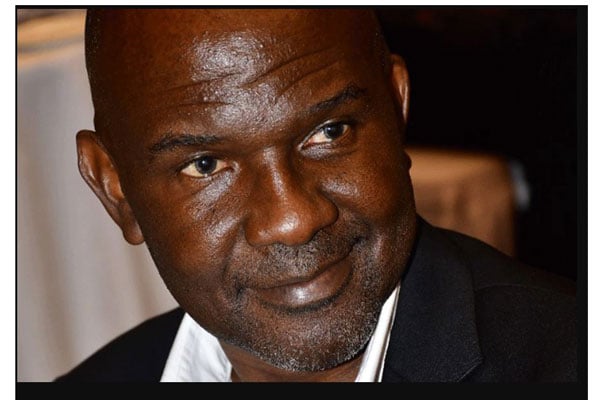Prime
Africa is too fragmented to survive in the future world
What you need to know:
- In comparison, 69 percent of Europe’s trade was within the continent and Asia and North America performed at 52 per cent and 50 per cent respectively. The average East African elite are unaware that Nigeria manufactures cars, and would possibly find it hard to buy cars made in Nigeria due to the rigour that would be involved
- Customs procedures between African countries can be tedious and visa requirements prohibitive. By the end of 2018, a Ugandan could travel to only 15 of the 54 African countries without need of a visa. Ironically, the Ugandan passport could avail this privilege in 53 countries outside Africa
Africa is ranked as the least connected region in the world. The 54 countries on the continent operate different budget and economic plans, implement diversified monetary and fiscal policies and needless to say sometimes exercise protectionist endeavours against even their immediate neighbours. Africa, as a continent, is possibly the most affected by the adverse consequences of fragmentation of markets, limitations to market access and accompanying constraints to expansion of trade. African countries face the same development challenges and remain economically very weak.
By 2017, the total continent’s GDP stood at USD2.19 trillion, in comparison to the USD2.583 trillion posted by France. France is a small country, about two thirds the size of Tanzania in terms of geographical size.
Africa’s trade aspirations are, largely, not within itself, and ability to export significant items to the western world is often verbalised as a measure of trade success. It is of course prudent to sell to those who have the money, but when that implies that the seller will as a result risk too much of their opportunity for self-empowerment, then that trade arrangement should be perceived in a temporary sense, as long term self-sustainability options are sought.
By 2018, it was estimated that 30 per cent of the world’s remaining mineral wealth was in Africa. The second largest continent with vast land totaling 30 million square kilometers, abundant mineral resources and huge amounts of people capital, Africa remains the poorest and has failed to translate its potential into wealth. The continent remains highly dependent on exporting commodities such as metals and minerals as well as oil, in raw form. There is currently little prospect of African countries trading these among themselves. In 2014, only 18 per cent of Africa’s trade was with itself.
In comparison, 69 percent of Europe’s trade was within the continent and Asia and North America performed at 52 per cent and 50 per cent respectively. The average East African elite are unaware that Nigeria manufactures cars, and would possibly find it hard to buy cars made in Nigeria due to the rigour that would be involved. Customs procedures between African countries can be tedious and visa requirements prohibitive. By the end of 2018, a Ugandan could travel to only 15 of the 54 African countries without need of a visa. Ironically, the Ugandan passport could avail this privilege in 53 countries outside Africa.
Movement between African countries is costly. An African airline might offer a lowest cost of about $344 (about Shs1.2 million) for a flight from Entebbe in Uganda to Lusaka in Zambia for one individual, a flight distance of 1760 kilometres, but the comparative cost for going to Dubai, 3740 kilometers away and more than twice the previous distance might be only $477 (about Shs1.7 million), offered as well by an African airline.
African countries largely do not complement one another. A Harare resident is unaware that bananas can be eaten cooked, and will go hungry for lack of food even if in Uganda, a mere 2,000 kilometres away, there is a bountiful harvest of plantain. In the meantime, the Ugandan will be struggling to export their bananas to Europe and the European might as well be complaining that the Ugandan banana is not meeting their required standard and rejecting it.
And while Africa remains in the above condition of disjoint, the world transforms into a jungle of escalating trade wars, shrewd tendencies towards exclusion of harmony from the global trade order. In April this year, the World Trade Organisation reported a sluggish world trade for the year 2018, on account of rising trade tensions and increased economic uncertainty. Hope for recovery of global trade health is dependent on easing of tensions.
Without reigning on this trend, there is a global threat to jobs, growth and stability all over the world, but more so in Africa due to high levels of already prevailing poverty and unbalanced reliance in far off markets on other continents. Trade tensions breed selfish decisions from stronger nations as relevant rules break down. In such an environment, weak parties can only get exploited and destroyed. At best, they will simply be ignored.
In the unfortunate instance that the world continues to degenerate along current lines of jurisdictional protectionism and disregard for rules, or if the scenario eases but then plays out again in future even if intermittently, Africa’s trade model which does not utilise incontinent potential is a grave danger. It guarantees continued poverty and erosion of hope for future generations to develop and take charge of their economic destiny. Africans must ensure that the ongoing African Continental Free Trade Area initiative works to address the above dangers.
Raymond is a Chartered Risk Analyst and risk management consultant
[email protected]




